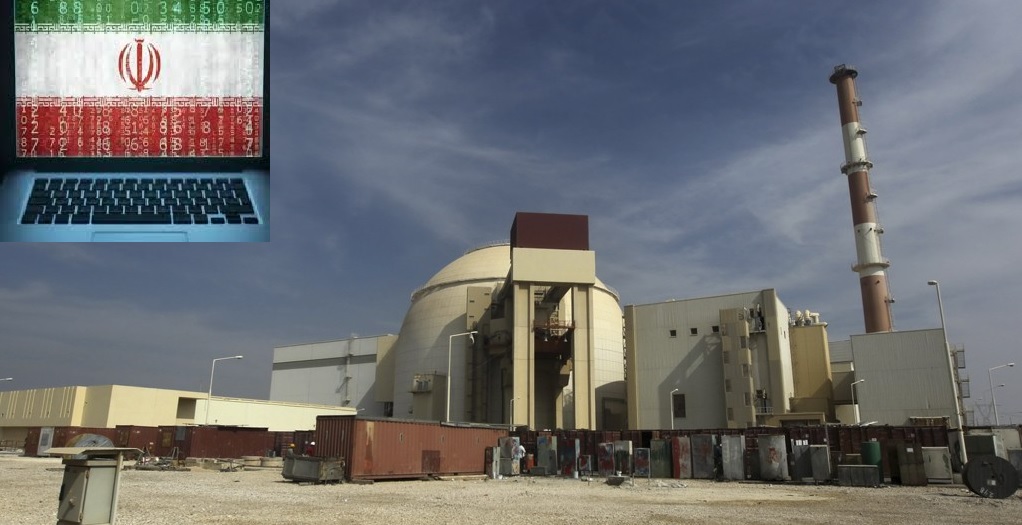Massive Cyberattacks Cripple Iran's Nuclear Facilities: Is Israel Behind It?

On October 12, Iran faced one of its most significant cyberattacks in recent history, with nearly all sectors of its government and crucial infrastructure under siege. This attack disrupted operations across the judiciary, legislative, and executive branches, hitting vital services and infrastructures. However, it wasn’t just the governmental functions that were affected; Iran’s nuclear facilities were also reportedly targeted, raising serious concerns about the potential players behind this massive digital assault.
The timing of the attack is notable, coming on the heels of escalating tensions between Iran and Israel. Just days earlier, on October 1, Iran launched a missile strike that many observers believe was aimed at provoking Israel. Israel, in turn, had issued stern warnings, with Israeli Defense Minister Yoav Gallant promising a "lethal and surprising" retaliation. As the cyberattacks crippled Iran’s networks, questions quickly surfaced about whether Israel was responsible for this offensive.
A Nation in Digital Chaos
The scope of the attack on Iran is staggering. Ali Firouzabadi, former secretary of Iran’s Supreme Council of Cybersecurity, expressed the gravity of the situation, noting that nearly every branch of the Iranian government was affected. In addition to government functions, vital sectors including transportation, fuel distribution, municipal services, and ports were disrupted. Even Iran's prized nuclear facilities were compromised, with reports of sensitive information being stolen, further deepening the crisis.
These attacks are viewed as more than just isolated incidents. They were precise and well-coordinated, affecting critical services that are essential for the daily operations of the country. It’s clear that whoever orchestrated this strike knew exactly which targets would cause maximum disruption, and it doesn’t appear to be a coincidence that these attacks followed the recent missile tensions between Iran and Israel.
Israel’s Unspoken Hand?
Israel and Iran have been locked in a shadow war for years, with cyber warfare becoming a primary battleground. From Stuxnet to more recent cyber clashes, Israel has a history of using sophisticated digital tools to undermine Iran’s nuclear ambitions. The latest cyberattacks bear hallmarks of Israel's previous strategies: targeted, disruptive, and timed with precision.
Yoav Gallant’s earlier statement warning of a “lethal and surprising” retaliation adds fuel to the theory that Israel could be behind these attacks. He had emphasized that Iran "wouldn’t understand what happened," a chilling forecast given the scale and stealth of the cyber campaign that unfolded days later. Although Israel has not officially claimed responsibility, the timing and precision of the attacks align with Gallant's promise.
Broader Regional Implications
This latest cyber onslaught is not just another chapter in the Israel-Iran conflict; it has far-reaching implications for the entire Middle East. Israel is already engaged in military operations in Gaza and Lebanon, facing threats from Hezbollah and other militant groups. The widening conflict with Iran could further destabilize an already volatile region.
Iran’s inability to shield its nuclear infrastructure from these cyberattacks exposes a significant vulnerability, making it a prime target in the future. The fear is that as Israel continues to flex its cyber capabilities, Iran might be forced to retaliate in more unpredictable ways, potentially leading to an all-out cyber war. Such a conflict would not be limited to the virtual world; it could have very real and dangerous repercussions for the broader geopolitical landscape.
The global community, particularly the United States, is watching these developments with great concern. While President Biden has expressed reluctance to support strikes on Iran’s nuclear facilities, the growing cyber tension adds another layer of complexity to the fragile balance in the region.
A Digital Cold War
As the dust settles, the Iranian government will undoubtedly work to recover from the cyber assault, but the damage may be deeper than just disrupted services. The theft of sensitive data from nuclear facilities raises questions about how secure Iran’s programs are from external attacks. This incident reinforces the notion that cyberspace has become the new frontline in the long-standing rivalry between Iran and Israel.
With neither side backing down, the world remains on edge, wondering what the next move will be in this dangerous digital chess game.


